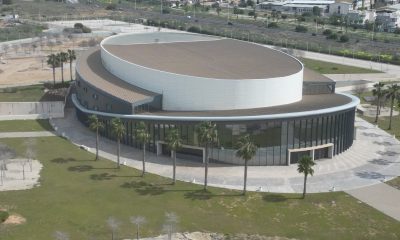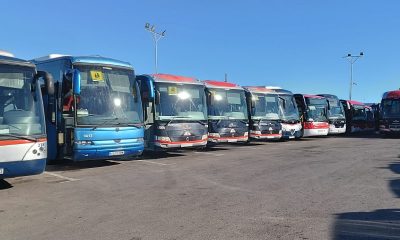Costa Blanca
Goodbye forever to the traditional butane gas bottle
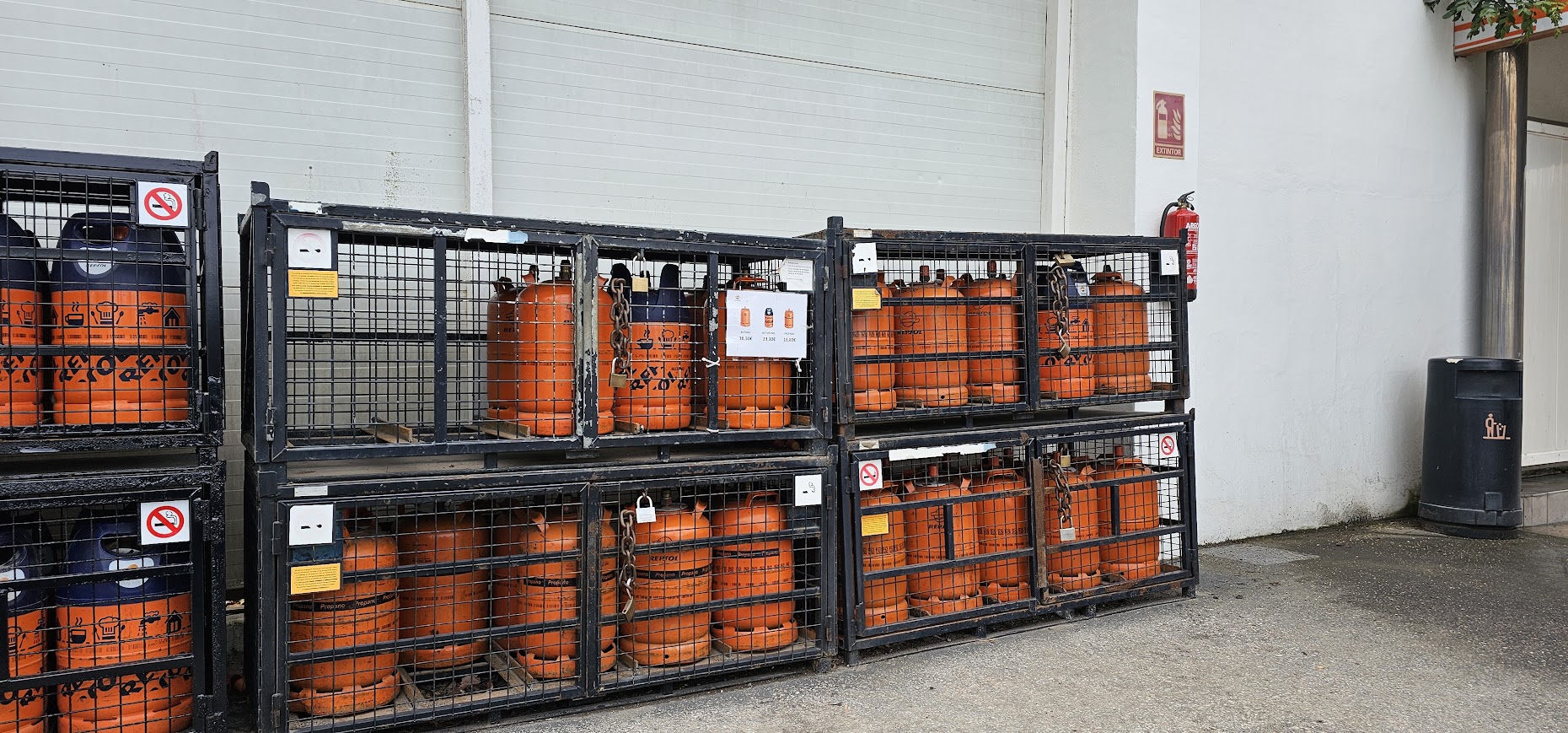
The orange butane gas cylinder has been a symbol of Spanish residences for decades. Several generations have collectively imagined its distinctive colour and shape, a fixture in kitchens, bathrooms, and terraces. Nevertheless, the manner in which we consume energy is subject to change as well. This classic appears to be on the brink of extinction in the face of technological advancements and the movement towards a more sustainable energy transition.
Repsol and Cepsa, two of the largest companies in the world, have made strides in 2025 by introducing more efficient, lightweight, and modern alternatives. These new cylinders incorporate technological advancements to improve product control and traceability. Furthermore, the expansion of alternative energy sources, including natural gas, induction charging, and heat pumps, is progressively relegating butane to a secondary position.
The new butane cylinder that is here to stay
Repsol has spearheaded the market transformation with an intriguing proposal: a butane cylinder that is lighter than the traditional cylinder, with a capacity of 12 kg and a total weight of only 17 kg, as opposed to the traditional cylinder’s 25 kg. This new version is more convenient to transport and use on a daily basis due to its use of lighter materials and high-strength steel.
Additionally, users can monitor the container’s status and consumption in greater detail thanks to its NFC chip. The retail price of this cylinder varies between €20 and €24, depending upon the point of sale, which can be found at petrol stations or online.
Cepsa has not been neglected. The company has selected a line of cylinders that are lighter and more manageable. The 12.5 kg model, which is similar in capacity to the traditional model, is sold on the open market at prices varying from €17.67 to €20.94 and has a lower total weight (18 kg).
This alternative is particularly appealing to home consumers who continue to depend on butane for cooking or heating water, as it provides a satisfactory balance of functionality and user-friendliness. Notable products designed for outdoor living and leisure are the Campingaz 901 and 902 petrol cylinders.
The conventional butane gas cylinder, despite its continued presence in millions of households, appears to have commenced its journey towards its definitive extinction. Companies such as Repsol and Cepsa’s dedication to containers that are lighter, more manageable, and more sustainable is indicative of not only a commercial necessity but also an adaptation to the evolving era. Our society is transitioning to a more environmentally benign energy model that emphasises rational and efficient resource utilisation.
Additionally, state regulation is exerting a significant influence. The government establishes prices for certain cylinders, including the regulated 12.5 kg cylinder (currently priced at €17.67), which provides some level of consumer protection. Nevertheless, the emergence of new options that make a significant difference is being driven by competition and innovation in the free market.
However, the development of butane does not exclusively determine the future. Propane gas stands out as a powerful alternative, particularly in cold regions where butane gasification poses challenges. Propane is available in regulated 11 kg containers (priced at €14.65) and larger 35 kg containers, which are intended for high-volume industrial or domestic consumption, with prices commencing at €70. These containers are designed to provide a more effective response to low temperatures.
Although we cannot definitively declare the renowned orange butane gas cylinder extinct, it is gradually disappearing from the Spanish energy landscape. More sustainable and efficient foundations, tailored to a more comfortable lifestyle, establish the future.
Alternative sources of energy
In contrast to conventional butane gas cylinders, new energy alternatives exhibit distinctions that surpass mere weight or price. The evolution of energy consumption in Spanish homes is indicative of a more profound transformation: a change in consumer mindsets, routines, and our understanding of sustainability and efficiency.
Although butane remains a pertinent energy source in numerous rural areas and second residences, it is losing ground to more contemporary alternatives. Electric induction cooktops have become the norm for cooking in newly constructed residences, particularly in urban areas. They are safe, easy to clean, and faster than traditional gas, making them attractive for both families and people who live alone or have little time to cook.
Another development that is acquiring momentum is the heat pump. This system, capable of providing heating in winter and cooling in summer, consumes less energy than traditional methods and significantly reduces CO₂ emissions. Furthermore, some models can also heat domestic water, making them a comprehensive solution for the home. In this context, the classic orange gas cylinder is starting to seem like a thing of the past.
Discover more from Costa Blanca Daily
Subscribe to get the latest posts sent to your email.
Costa Blanca
Elche companies swindle a million euros in subsidies
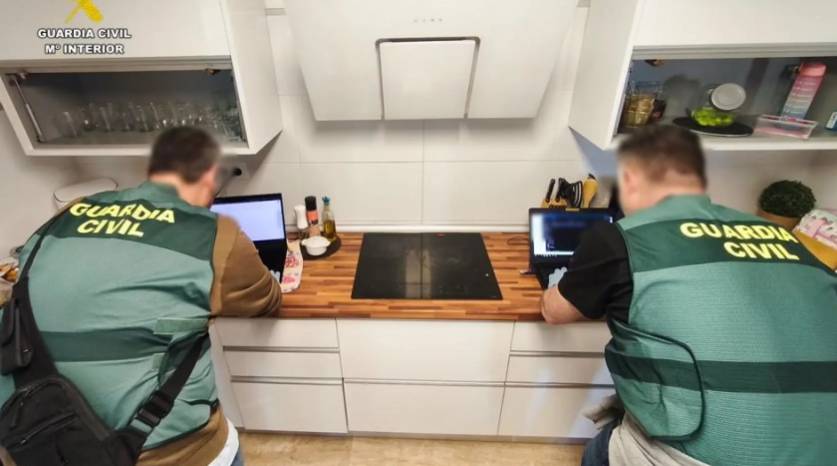
A business network in Elche has been dismantled, and four individuals have been arrested for defrauding over one million euros in public subsidies from the Valencian Government and the European Social Fund to promote employment. They spent the funds on high-end cars and used them for unrelated purposes.
The investigators became suspicious when the companies promptly dismissed the contracted workers, voluntarily resigned, or ceased operations.
The fictitious contracts were identified as a result of a complaint submitted by the Valencian Employment and Training Service (LABORA) to the Anti-Corruption Prosecutor’s Office regarding potential irregularities.
Public aid was exploited by structured fraud to facilitate the employment of qualified personnel and vulnerable individuals. Despite the initial formalisation of employment contracts, they frequently failed to satisfy regulatory mandates.
The Urban and Economic Crimes Team of the Organic Judicial Police Unit of the Guardia Civil of Alicante has been conducting an analysis of the traceability of the money received for nearly a year. The team has identified transfers between bank accounts associated with the individuals involved and diversions to personal expenditures.
In April of last year, a search of the group leader’s private residence in Elche, as well as certain offices that are still in use in the city’s technology park, turned up €9,000 in cash, a high-end vehicle, and various pertinent documents. The authorities also seized properties and accounts.
The court presented the four detainees and released them after taking precautionary measures against the alleged leader.
They face accusations of money laundering, contract execution failure, membership in a criminal organisation, and subsidy fraud.
The Civil Guard has emphasised the institutional collaboration necessary to combat this type of fraud, stating that “the investigation was conducted under the direction of the Prosecutor’s Office against Corruption and Organised Crime of the Alicante Provincial Prosecutor’s Office, with the collaboration of LABORA.”
Discover more from Costa Blanca Daily
Subscribe to get the latest posts sent to your email.
Costa Blanca
Elche renews the five blue flags on its beaches

The five Blue Flags at Arenales del Sol, Carabassí, El Altet, La Marina, and Les Pesqueres-El Rebollo have been renewed by the Elche City Council.
Tourism Councillor Irene Ruiz expressed her enthusiasm for the awards’ renewal, emphasising that “Elche’s beaches are the stars once again this year.” She also emphasised that this distinction underscores the quality, management, services, and safety that all of the beaches provide.
Annually, the Association for Environmental and Consumer Education (ADEAC) awards blue flags as one of the quality and environmental certification distinctions. This designation is based on a variety of criteria, including environmental management, water quality, swimmer safety, beach services, and environmental information and education.
Discover more from Costa Blanca Daily
Subscribe to get the latest posts sent to your email.
Costa Blanca
The towns with the highest crime rate in Alicante province

Although the Ministry of the Interior’s most recent data indicates a slight decrease in crime in Spain during 2024, the Crime Report also documents an increase in certain serious crimes, including intentional homicides and completed murders, which have increased by 4.5%, and sexual assaults with penetration, which have increased by 6.7%.
In comparison to the conventional crime rate, this amounts to 41.0 crimes per thousand inhabitants. Additionally, the report offers a detailed analysis of the various offences and the number of reported cases in each municipality. Statistics in the province of Alicante set it apart.
In 2024, the city of Alicante in the Valencian Community province was the municipality with the highest crime rate, with a total of 20,577 cases recorded. Following it are Torrevieja with 8,337, Elche with 8,132, and Benidorm with 5,167. Nevertheless, it is crucial to bear in mind that the provincial capital has a significantly higher population than the remainder of the municipality.
Kidnapping is one of the most egregious crimes in this region. In the province of Alicante, there were 8 of the 13 cases that occurred throughout the Valencian Community. Alicante reported three cases, Benidorm reported one, Calp reported one, Pilar de la Horadada reported one, Crevillent reported one, and Torrevieja reported one.
The province reported a total of 1,145 cases of narcotic trafficking. Last year, Benidorm reported 171 cases of this form of crime, making it the second most notable town after Alicante, which reported 352 cases. There are also villages and cities where fewer than 10 cases have been reported, including Calp (2), Ibi (3), Sant Joan d’Alacant (4), Novelda (4), Villajoyosa (6), Almoradí (7), Mutxamel (7), Alcoy (8 cases), Petrer (8), and San Vicente del Raspeig (9).
The province has a total of 1,008 transgressions against sexual freedom, as listed in the Interior Ministry report. This category encompasses sexual assault and abuse that involves penetration, with a total of 222 cases reported last year. Villena, Petrer, and Ibi are among the municipalities that have not recorded any cases. However, Alicante, Elche, and Benidorm have higher numbers: 52, 30, and 19 cases, respectively.
Discover more from Costa Blanca Daily
Subscribe to get the latest posts sent to your email.
-
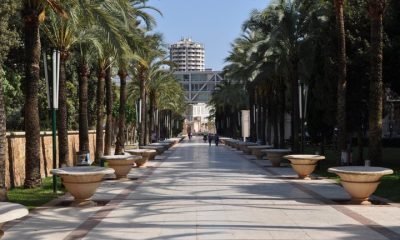
 Costa Blanca2 weeks ago
Costa Blanca2 weeks agoBenidorm studies the temperature of its streets to understand “heat island effect”
-
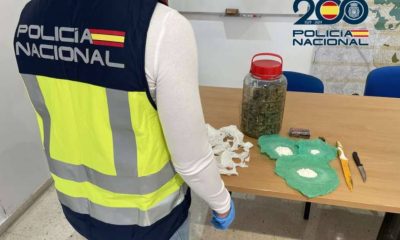
 Costa Blanca2 weeks ago
Costa Blanca2 weeks agoFour minors arrested for smuggling drugs on a school trip
-
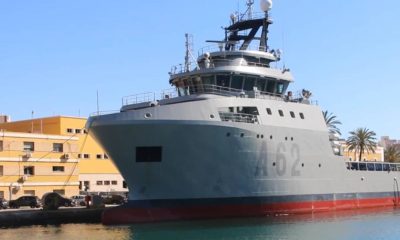
 Costa Blanca2 weeks ago
Costa Blanca2 weeks ago‘Cartagena’, the new electric Navy ship
-
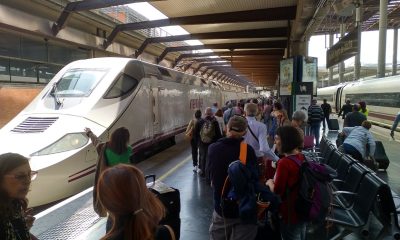
 Costa Blanca2 weeks ago
Costa Blanca2 weeks agoCompetition on Spain’s railways is driving down prices
-
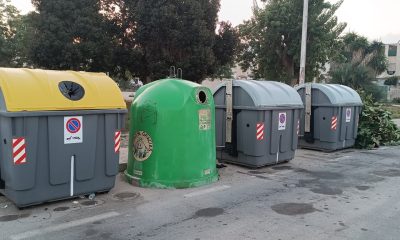
 News1 week ago
News1 week agoThe Vega Baja only recycles 402 tons of organic waste per year
-

 Costa Blanca2 weeks ago
Costa Blanca2 weeks agoAlicante port gets an electric boat for cleaning the water surface
-

 Costa Blanca1 week ago
Costa Blanca1 week agoKirsty Maxwell Benidorm balcony death to be probed in new series
-
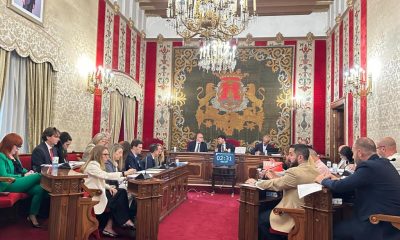
 Costa Blanca2 weeks ago
Costa Blanca2 weeks agoAlicante will recognize the bravery of two local police officers for saving lives in a fire



